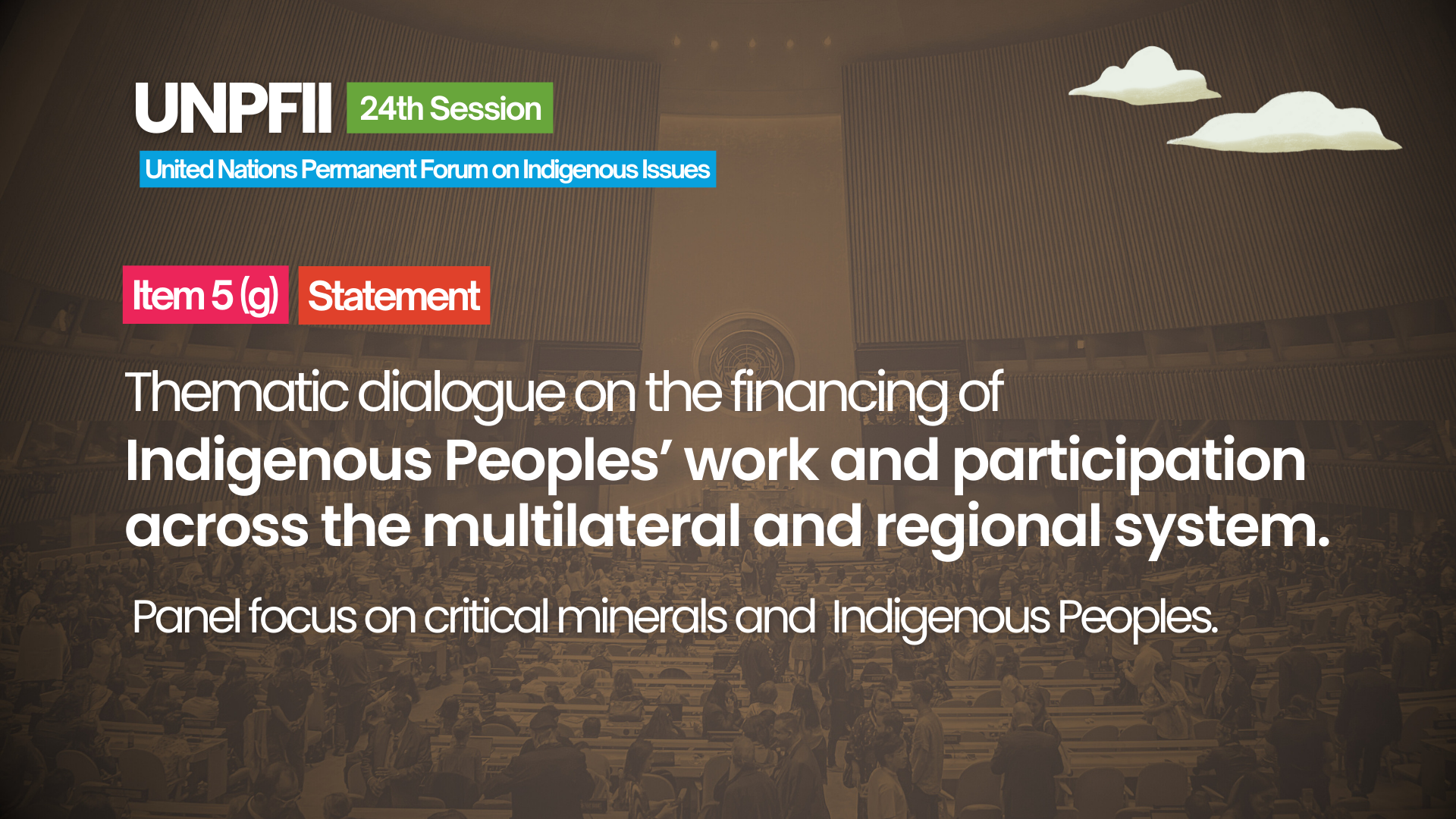April 18, 2024. Faced with the lack of justice, social equity and sustainability in the current approach to energy transition, a group of 87 indigenous representatives from 35 countries met to set out their concerns and demands for a just transition.
In the context of the 23rd session of the UNPFII, the indigenous representatives met to present the main issues and recommendations made at the Conference on Indigenous Peoples and Just Transition.
They warned that indigenous peoples must be at the center of renewable energy projects, and acts of aggression against indigenous defenders of their territories must end.
Bannie Lasimbang, of Right Energy Partnership with Indigenous Peoples, said that greater access to finance is needed to develop indigenous energy systems. Lasimgang, an expert on indigenous energy projects, warned that “large-scale energy projects affect us and are disruptive, such as large nickel and copper deposits. And the demand for these critical minerals will increase”.
Jesús Amadeo Martínez Guzmán, from El Salvador, denounced the criminalization of struggles in the territories against large energy projects. “Yesterday we expressed this to companies, donors and governments. Many have committed to respect FPIC but do not do so, so how can we talk about a just transition?” He added that we see it as justice, they see it as a question of profits.
For his part, Saro Pyagbara, Ogoni from Nigeria, questioned how we can talk about shared prosperity, just transition, when the minimum level and our capacity are not recognized. He said that there are energy projects all over Africa, but communities do not even have access to electricity. He pointed out that if there are benefits, they should also reach the community. Only then can we talk about shared prosperity.
Lars-Anders Baer, Saami, spoke about the situation in the Arctic region. He noted that when we talk about green transition, the Nordic countries have made progress, but there is a debate about policies on the use of natural resources. In his case, some dams are displacing their rivers. Right now there is more pressure on the resources of the Sami territories, as there are plans to exploit them.
Wikitoria Hepi Te Huia, a member of the Tauhara North No.2 Trust in New Zealand, points out that the indigenous people control their business project and their territory. They have a shared ownership model with a New Zealand state-owned company to generate geothermal energy; they have 25% of the company's shares and a veto clause if the company's actions affect their traditional values. They also have a food growing strategy, a social strategy, an educational strategy and a business strategy. “The benefit is for our people, to enjoy self-determination and move forward together. The indigenous people must control their resources and their destiny,” he summarized.
Emil Rasu Sirén Gualinga, of the BHRRC, reported that representatives of the Conference held meetings with investors, funders and embassies to present the results. This would demonstrate that these actors are willing to open a dialogue with indigenous peoples for a #JustTransitionForAll.




